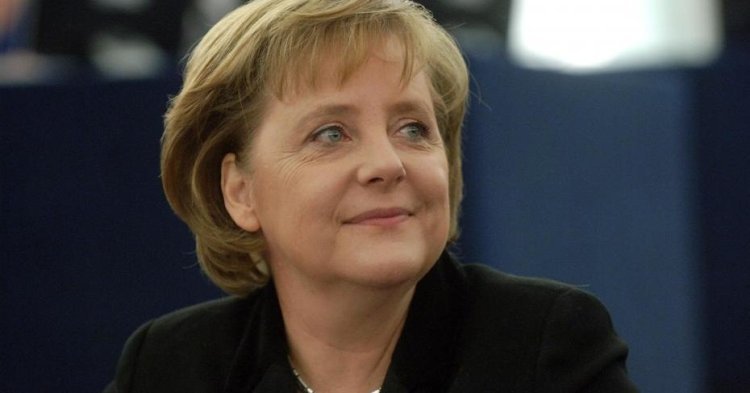The German parliamentary election on September 22nd marked the peak of power for chancellor Angela Merkel. Her party, the conservative Christian-Democratic Union (CDU), nearly won a super majority in the German parliament, the Bundestag. 41.5% of voters supported the CDU. It was a surprisingly clear win and a personal victory for Merkel, since her party has not benefited from the chancellor’s popularity in the past. Merkel was appointed as chancellor after a disappointing, near-disastrous election result in 2005. In 2009, a strong liberal party marked the path for Merkel’s second term in office. 2013 shows a drastically different picture: Merkel’s popularity elevated her party to unexpected heights among all classes in Germany. She re-established the Christian-Democratic Union’s status as a “Volkspartei”. Angela Merkel will continue to rule Germany, either in a Grand Coalition with the Social-Democratic Party or a new alliance with the Green party.
In the history of the Federal Republic of Germany, only two chancellors have been elected for a third term: the first chancellor Konrad Adenauer (1949 – 1963) and Helmut Kohl (1982 – 1998) - two statesmen, who build their legacy on historic contributions to the European integration. This prospect raises the question: How is Angela Merkel going to change the face of continent in the next four years?
Merkel has become known for her taciturn style of governing. She hardly explains her policy in public, making it difficult to speculate about her true future plans or visions. Many political observers blame the uprising of the Euro-critical party “Alternative für Deutschland”, which nearly moved in the German parliament, on Merkel’s reticence. But a reconstruction of recent statements may hint towards the true motivations and next steps of the chancellor.
First, Angela Merkel has clearly committed herself to Europe. At a campaign event, she called the European values of freedom the “treasures of our life”. It is a surprisingly passionate declaration for Merkel, who has often been labeled as boring and pragmatic.
The second observation covers Merkel’s management during the financial crisis in the Eurozone. Two principles build the foundation of her strategy: solidarity and self-responsibility as two sides of one medal. Meaning the chancellor only allowed German financial help for distressed states, if these states enforced necessary structural reforms and budgetary austerity. Solidarity and self-responsibility - chancellor Merkel proved her commitment to the values in her foreign policy in a consistent and credible way, at least to the German public. The election approved this course on September 22nd. It is a vote of continuity for the chancellor’s course of action in the European crisis. After all, it is a path Germans know from the mid-2000s, when chancellor Gerhard Schröder painfully but ultimately successfully reformed the labour market and social systems against heavy opposition.
Third, the chancellor pictured a simple formula during her election campaign: 7% of the world’s population live in Europe, they produce 25 percent of the worldwide GDP and spend half of the global budget on social welfare. Merkel establishes a rule of three - geopolitics, competitiveness and welfare - as a main theme of her European vision.
But where do these clues lead to? Several ways are possible for the future of the European Union. Angela Merkel seems to prefer the national state as the main protagonists of European politics – at least right now. The chancellor recently declared her reluctance to expand the power of the European Commission. Further proof of this assumption is an essay by German journalist Stefan Kornelius about the chancellor’s strategy during the European financial and currency crisis. Kornelius describes Merkel’s conclusions with these words:
“The chancellor’s answer: the national states have better solutions. She justified this thesis with weighty arguments. The citizens were in no way in the mood for more Brussels. Furthermore, the political systems in Europe from taxes to social issues were just too different. Merkel also did not want to open the European Treaties, the risk here was simply too big. The decision was clear: The nation states should address the crisis and conclude contracts with each other."
Best example of this is the European Fiscal Compact. A contract among 25 EU member states to improve their economic and fiscal policy coordination, which was concluded without the United Kingdom and the Czech Republic. This indicates that the German chancellor will accept a two-speed Europe in case of emergency. It is a policy of small steps in the supranational integration. This way, nation-state competences and enhanced intergovernmental coordination obtain preference to an institutional deepening of the European Union.
Whatever course of action Merkel is going to take: She has the duty to explain her policies to the citizens across the continent. Silence is not an option. Whether she will ever hold the long awaited passionate speech on Europe is doubtful. But hand in hand with the European partners, the chancellor of the biggest national economy in Europe has to rally people’s hearts and minds on the way to the political future of Europe.
All predictions aside: Angela Merkel has won a strong mandate for her third term. This bears huge responsibility. Not only for Germany, but for Europe as well.


Follow the comments: |
|
